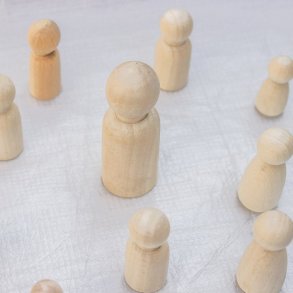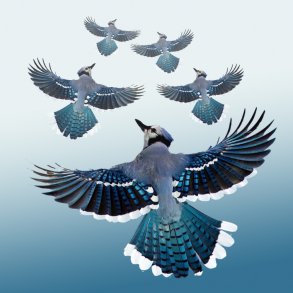By Heinz Robert, originally published on medium.com, and slightly edited here by EE Magazine
In early November I went to London for a workshop related to the book by Hilary Bradbury and William Torbert. I had been really looking forward to this workshop for several weeks. It felt like everything turned out in my favor to be able to attend. I earned good money the month before to pay the flight and AirBnB, got a scholarship for the course, and I had time to go to London for some extra days, as I had never been to the UK before. The workshop seemed very important for my work, as I am currently writing a book about a similar topic. I “had to be there,” so my intention was strong.
When I arrived at my AirBnB the friendly host asked me for the purpose of my visit to London, so I told her about the workshop. She was immediately interested, and also was hooked on the topic of my writings, as I mentioned my book. So we had a short conversation about Eros/Power and the dynamics of relations in organizations, even before she showed me my room, where I would stay for the next four nights.
As I had just started to read the Bradbury/Torbert book Eros/Power, Love in the Spirit of Inquiry, some days before my arrival, and maybe because of my lack of proper English, I did not understand exactly the meaning of the slash in the title. I was separating Eros and Power as two different energies: Eros as a form of love and attraction, and Power more as a ruling or dictating force.
I was interested in the dynamics between these forces, but was not yet aware that it means also the power that the unity of both can have on our relations, either intimate, platonic, or professional.
So I was pleasantly surprised by finally comprehending the meaning after reading the first chapters of the book, and in the first few hours of the workshop.
I read first about the book, and the workshops based on it, in an article in Enlivening Edge Magazine, and was immediately interested to join one as soon as possible. Standing in the room with the two facilitators of the first day, Heidi Gutekunst and Dana Carman, I felt so proud: “I have managed to come here.”
Could working with Eros even be a catalyst for moving from Teal to Turquoise?
The hype around the Teal organizations started about a year ago with the publication of Fredric Laloux‘s book Reinventing Organizations, and many people who never heard about developmental stages before, are still in the process of understanding what Teal means. With that said, I also see some obstacles in the unfolding of Teal, as many people who just discovered it come from an Orange, rational and success-driven, business mindset, sometimes burned out or discouraged by the working environments they have been in for many years, environments which are still traditional or modern. I hear people speaking about Teal as if it were just a new way of motivating employees, and to make them be more productive and efficient, so the company can make more revenue. Yes, this might and will happen, but it shouldn’t be—in fact it can’t healthfully be—the main motivation for trying to become a Teal organization.
Bringing in awareness of Eros as the primary life force that drives evolution, raising the dialogue about it, and bringing in practices to the workplaces to embody this force in us, can lead to more wholeness, which is one of the three foundational “breakthroughs” common to Teal organizations.
Teal is a meme which focuses more on an intellectual understanding of the emerging form of being; Turquoise is the next stage where groups and collective practices are more based on direct experience. Speaking of experience leads me back to the Eros/Power workshop. Reading the book can help one to understand how the book came to be, and what the concept behind Eros/Power is. Participating in a workshop brings that conceptual understanding down into the body, and to the lower energy centers where Eros is first experienced when it awakens in us.
One exercise to start with, is bringing the focus of awareness down to the belly and the genitals. Some speak about these areas as Sacral and Base Chakras, or Hara, respectively the lower Dantian in Chinese traditions; they are the centers or energy fields where our motivation and power are generated. Being aware what’s going on there in any situation, and especially in relation to other human beings, is crucial to understand some of our life’s decisions, where we are drawn, or what diminishes our life energy. By knowing what is going on in the lower floors of our own human office tower, and bringing this important information up to the level of the compassion department (the heart,) and with confirmation of the important information by the heart, further to the upper floors and into the board room, we might get a new broader understanding of the wholeness of an organization, beyond any understanding we had before.
Through inquiry—internally oneself and with other people in small groups—it is possible to get more aware of the activities in the lower levels of the body, and of the impact of relating to each other. It goes beyond mindfulness, as it supports a collective understanding of group dynamics and even further, seeing ways of more constructive and co-creative collaboration.

Heinz is passionate about co-creation, conscious collaboration and transformational leadership. In his work he is always looking for a dialogue between different values and perspectives to co-create a future where everybody is able to express their full potential in fruitful and authentic relations.




